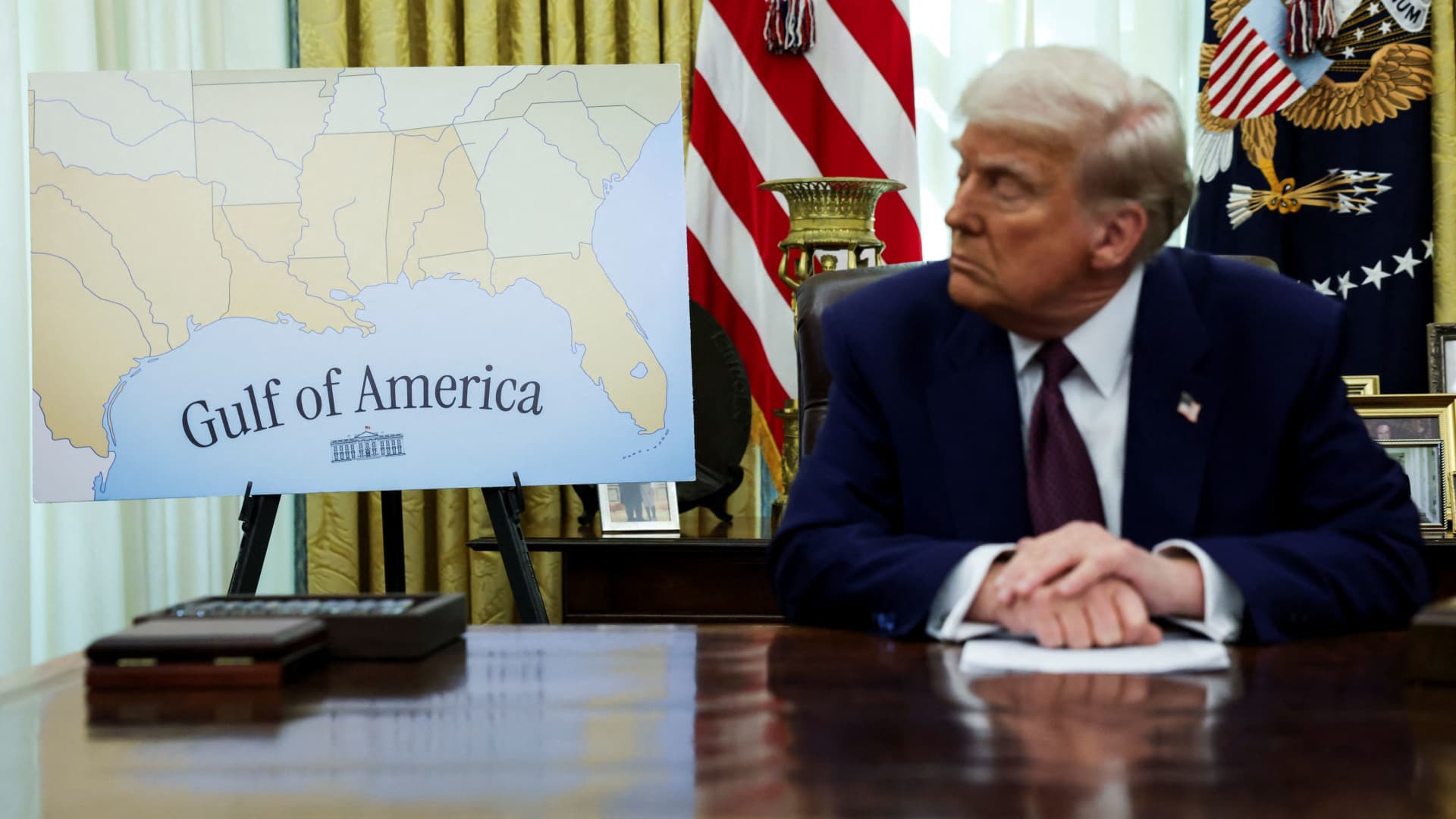President Donald Trump’s tariffs on imported goods have investors on edge as they could pressure a slew of companies regardless of sector. Within his first month back in office, he placed a 10% levy on all Chinese goods. China then retaliated with tariffs of up to 15% on select U.S. imports, including coal and liquified national gas products. U.S. neighbors Canada and Mexico have also been targets of the Trump administration. Trump earlier in February announced a 25% tariff on Canadian and Mexican imports. Those duties were quickly halted for a month, though there has been little indication that the White House would move away from them. Even Europe could be in Trump’s crosshairs when it comes to tariffs, after he signed a memorandum breaking down a plan to impose “reciprocal tariffs” on imports. “Tariffs cannot be positive, okay? I mean, it’s a tax,” billionaire investor Steve Cohen said Friday . “I think we’re seeing the regime shift a little bit. It may only last a year or so, but it’s definitely a period where I think the best gains have been had and wouldn’t surprise me to see a significant correction.” Against this backdrop, CNBC parsed data from Goldman Sachs to find the companies that could be hurt the most by tariffs. Specifically we looked at those with the most revenue exposure to these regions: Latin America, Asia Pacific and Europe, Middle East and Africa (EMEA). Latin America Renewable energy company AES topped the list, with around 53% of its revenue coming from the region. The stock has taken a beating over the past year, losing more than a third of its value. Airline carrier American Airlines derives approximately 14% of its revenue from Latin America. But Bank of America analyst Andrew Didora, who last month upgraded the stock to neutral, thinks that any potential tariffs won’t pose a severe threat to shares. That’s because a very small portion of American Airlines’ revenue comes from Mexico, while the rest is made up of long-haul flights through South America such as to Brazil or other vacation destinations in the Caribbean. “Quite honestly, I don’t think about my airline universe being meaningfully impacted by tariffs. Where I would see more meaningful impact is the tariff impact on currency,” Didora said to CNBC in an interview. “If it makes it more expensive or cheaper for leisure consumers to go back and forth to the two different geographies that could be an impact, but tariffs are not necessarily that meaningful from a passenger airline perspective.” Didora’s $20 price objective is approximately 31% above where shares closed on Friday. Europe, Middle East and Africa Booking Holdings topped the list of stocks with the most revenue exposure to EMEA at nearly 80%, followed by hydrocarbon exploration company APA Corp. at 59%. The former, which reported earnings that beat expectations on Friday, has rallied more than 33% over the past six months. The latter has struggled in that time, losing 18%. Another stock that made the list is Fortinet , with the cybersecurity company obtaining nearly 40% of its revenue from the region. Despite this high exposure, TD Cowen analyst Shaul Eyal believes that Fortinet can escape Trump’s tariffs relatively unscathed. “We can look at the entire cybersecurity industry as slightly more isolated given its mission criticality and how important cybersecurity has become. One could even make an argument that it is some sort of a consensus, bipartisan topic. There is absolutely no question about the growing need for cybersecurity solution,” he told CNBC. “Results and guidance indicate probably very solid demand, which is in the near term alleviating some concerns about tariffs.” Eyal added that cybersecurity companies are also safer from tariffs since they predominantly serve enterprises rather than direct consumers. Fortinet shares have rallied more than 16% to start the year. FTNT YTD mountain FTNT year to date Asia Pacific Las Vegas Sands has the highest revenue exposure to Asia Pacific, coming in at 100%, thanks to its massive presence in Macao, based on Goldman data. The company sold its Las Vegas properties to private equity in 2021. Even still, Jefferies analyst David Katz said that he has “not seen or heard of any evidence” that would suggest Las Vegas Sands would take a revenue hit from potential economic tariffs. “At the local level, these properties are well managed. They’re well connected with the Macau and Chinese governments, they have executed very well, they have been good citizens in the figurative and literal sense, and as a result, those enterprises generate a considerable amount of tax revenue for both Macau and therefore the Chinese government,” he told CNBC. “So impacting that in some way would be financially detrimental.” In January, Katz upgraded shares of Las Vegas Sands to a buy from hold rating. His price target of $69, raised from $60, is nearly 57% above where the stock closed on Friday. Shares of Las Vegas Sands have slipped 18% in the past 12 months. Other stocks with high revenue exposure to the region include Wynn Resorts at 47%, Corning at 51% and Teradyne at 70%. — CNBC’s Fred Imbert and Nicholas Wells contributed to this report.





